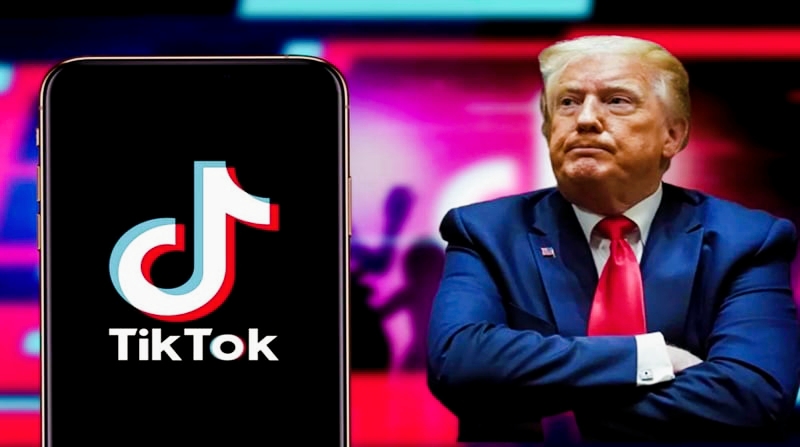US President Donald Trump revealed the presence of a "group of wealthy individuals" seeking to buy the TikTok app, indicating that he will announce their identities within two weeks.
Despite the anticipated deal potentially saving the app from being banned in the United States, it may require approval from the Chinese government, which Trump suggested is possible, saying: "I think President Xi will agree".
This comes as Trump extended, for the third time, the deadline given to the Chinese company ByteDance to sell TikTok's US assets by September 17, in accordance with a US law passed in 2024 requiring the sale of the company or the closure of its operations in the country, citing national security concerns.
An earlier deal this year to transfer TikTok's operations to a US-based company stumbled after China's refusal, especially following the Trump administration's imposition of new tariffs on Chinese goods.
Although TikTok has over 170 million monthly active users in the US, its future remains uncertain, especially after Trump threatened to impose a complete ban on the app if it is not sold.
Giant companies like Amazon and Oracle have expressed interest in purchasing TikTok's US operations.
Meanwhile, the company is preparing to cut a number of jobs in its US e-commerce division, after asking its employees to work from home awaiting what was described as "tough decisions".
Reports indicate that the changes come after Mo Cheung, a former senior executive at Douyin (the parent company in China), took over TikTok's store management in March in an attempt to develop a more efficient business model.
Amidst these disruptions, ByteDance continues to face increasing legal and commercial challenges, while TikTok is banking on boosting its revenue from e-commerce to compete with platforms like Shein and TEMU, having recently surpassed its competitors' sales in the US market.
This recent conflict harks back to its beginnings during Trump's first term, when he made initial attempts to ban the app.
However, TikTok's fate in the US remains uncertain until negotiations conclude, with the outcomes likely to be determined between Washington and Beijing.

